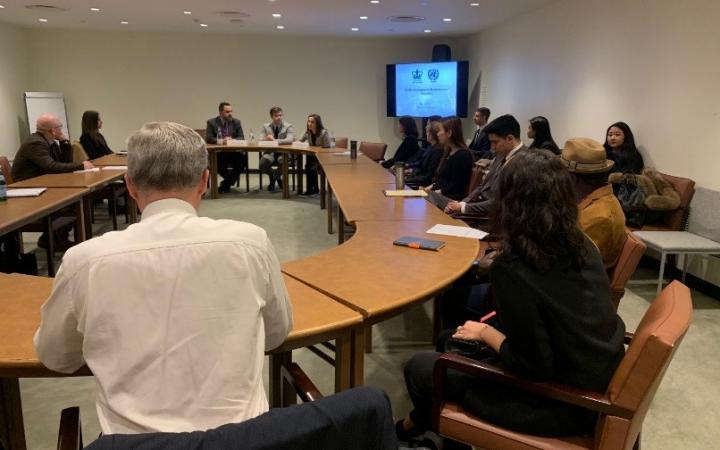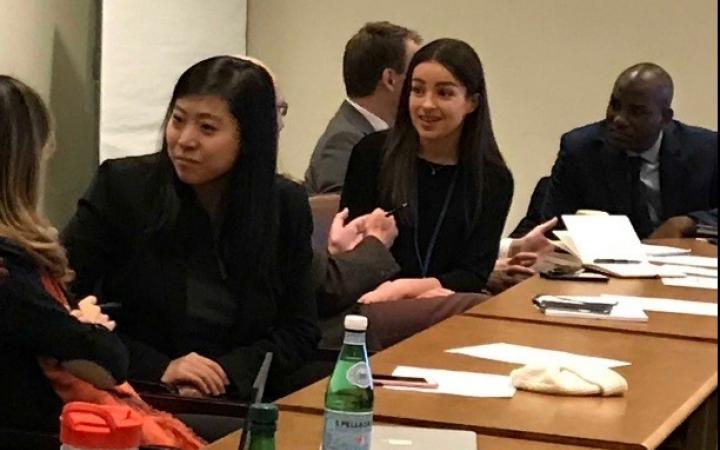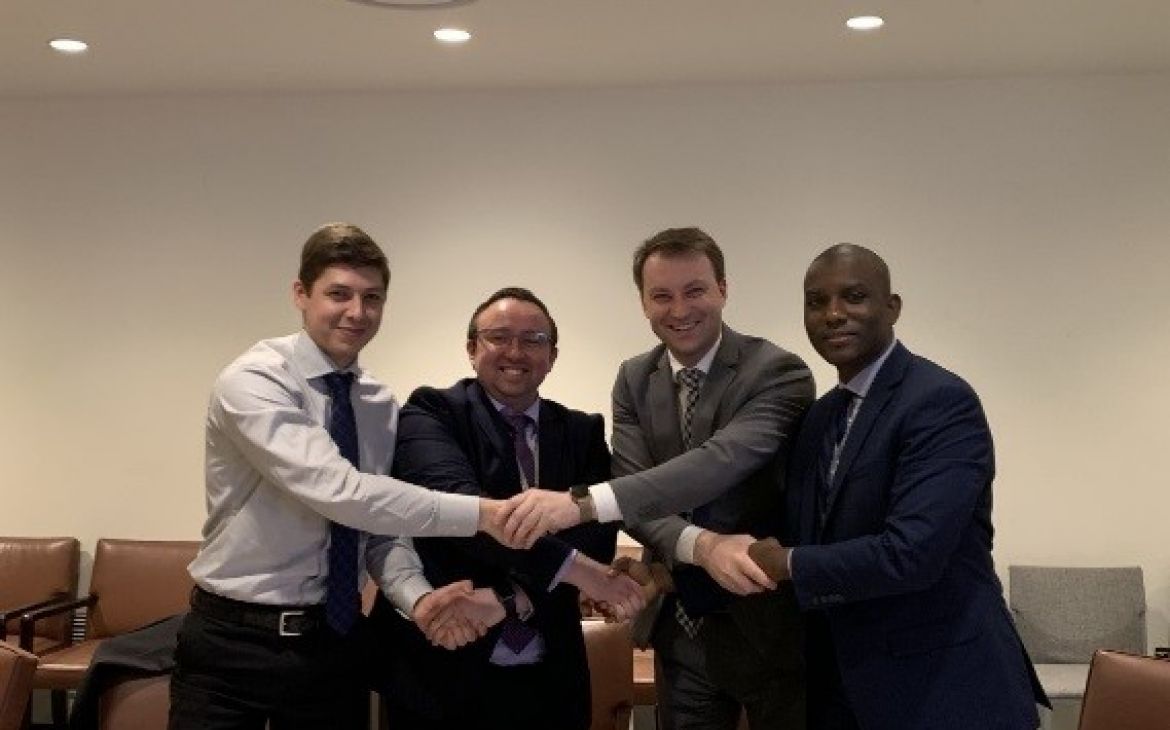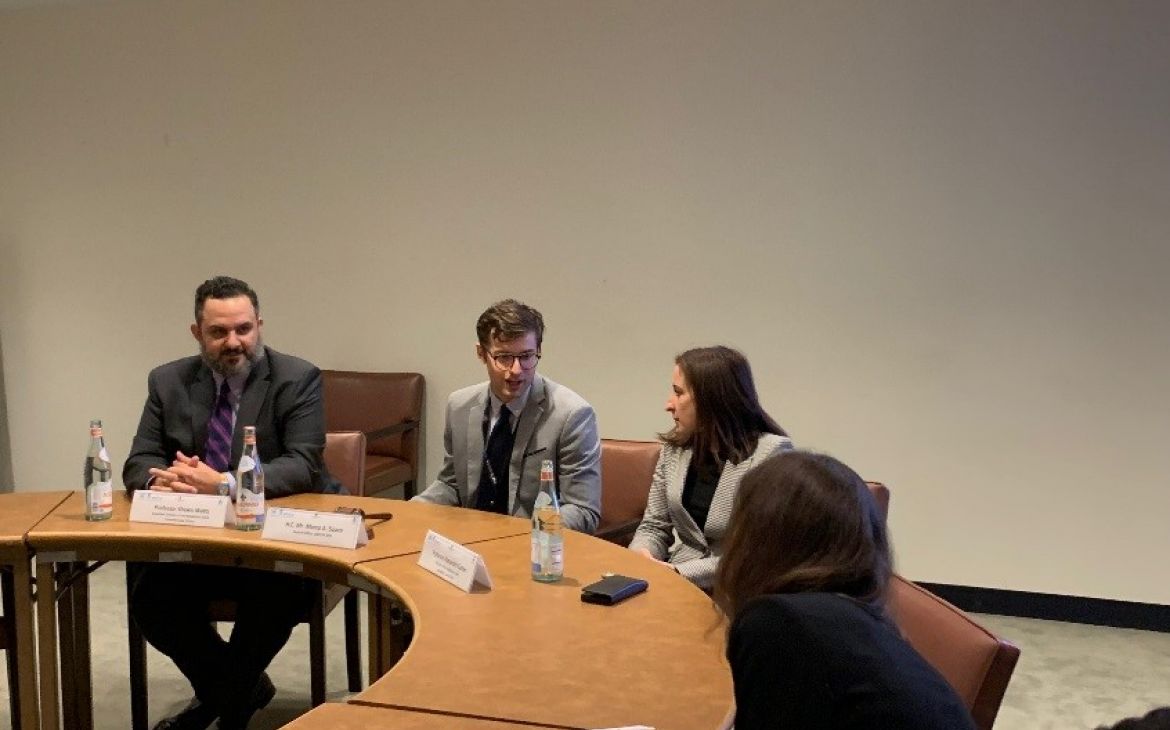14 May 2019, New York, USA - The United Nations Institute for Training and Research(UNITAR) in collaboration with Columbia Law School, hosted the last workshop in the four-part series on conflict resolution, mediation, and multilateral negotiation. This series was sponsored by the Government of Sweden under the programme “Leveling the Playing Field”. The workshop focused on Conflict Resolution for Environmental Protection, emphasizing the United Nation’s Sustainable Development Goals 6, 7, 11, 12, 13, 14, and 15, pertaining to water, energy, climate, and air.
Mr. Pelayo Alvarez, Programme Coordinator at UNITAR New York Office , delivered the opening remarks, welcomed participants, and introduced the workshop’s facilitators—Professor Alexandra Carter, Director of the Columbia Law School Mediation Clinic; Professor Shawn Watts, Associate Director of the Columbia Law School Mediation Clinic; and several students from Columbia Law School. Over half of the event participants had attended previous workshops in this series and most participants had no previous experience negotiating on environmental topics. The workshop began with small group discussions where participants shared how environmental conflicts are resolved in their country and their country’s framework for environmental protection. Law students then lead a discussion on when mediation might be a better pathway for solving environmental conflicts rather than litigation.
Next, the Law students shared strategies for active listening and had participants practices these skills with a partner. After the exercise, the participants and facilitators reflected on the personal barriers to active and how one can successfully apply the skills learned from the workshop. Then, Professor Alexandra Carter engaged with participants on how to strategically ask questions for effective negotiations.
Lastly, the participants did a role-playing exercise where they represented different interest groups and debating issues associated with indigenous land rights, development projects, ecotourism, and industry. By the end of the session, most groups had reached a mutually beneficial agreement for land-use, economic development, and environmental protection.
Real world case studies were discussed throughout the event and how the mediation tools learned from the workshop could be applied for resolving conflicts. Closing remarks were made by Professor Carter, and she thanked participants for attending the workshops over the course of the series and encouraged the attendees to give feedback on what topics would be useful to include for events next year.





